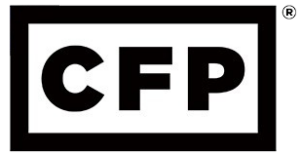Effective ways to reduce credit card debt
If you have a lot of credit card debt on your shoulder, consolidating them into one affordable repayment option may make sense. It could simplify your accounts, can reduce the overall interest rate to save more, and can help you to pay off your credit debt faster. You may also settle your credit card debt into a lower amount to save on the debt amount you owe. However, settling your credit cards can have a negative impact on your credit score.
Fortunately, there are ways to reduce credit card debt without ruining your credit. Let’s have a look at those options and choose the one which is best for you.
Try DIY debt repayment strategies
If you have multiple credit cards and a huge debt burden to pay off, then the best option to manage those credit card debts and keep your finances clean is to try DIY debt repayment strategies. Initially, you have to rework on your household budget, and either increase your income or cut back expenses more. If you can combine both ways simultaneously, you’ll become credit card debt-free very soon. Skipping weekend dine-out or doing a part-time job can do the trick.
Now, choose a debt-repayment method to reduce credit card debt. The two main strategies are the Debt Snowball and Debt Avalanche methods. Find free calculators here. With the Debt Snowball method, you list your debts from smallest to largest balance, paying the minimum on all but the smallest, which you focus on clearing first. The Debt Avalanche method involves listing debts from highest to lowest interest rate. Concentrate on paying off the highest interest rate debt first, while maintaining minimum payments on the others. Once the highest-interest debt is cleared, move to the next.
The best thing about choosing this strategy is you’ll be paying off the total credit card debt balances, so credit score will not be damaged at any cost.
Taking help from your close ones
If you have serious credit card debt issues and need financial help, then you may consider asking for money from your loved ones. You can ask for money from your spouse, your parents, your relatives, your friends, your neighbors with whom you have maintained a good relationship for many years, etc. With that financial help, you could reduce credit card debt and get rid of high-interest payments.
Taking monetary help from people can be helpful to reduce credit card debt and also has zero impact on the credit score. It is because you aren’t going into a monetary agreement which can be reported to credit bureaus if you violate your terms (non-payment of course). But, borrowing is never free. You may find an impact to your relationship with the people who helped you, especially if you do not pay them back.
Opting for a 0% balance transfer card
Balance transfer method is one of the best options to consolidate high-interest credit card debts (provided link is for example only and not vetted by Powwow, LLC). To reduce credit card debt using this option, you have to apply for a balance transfer card to transfer all the credit card balances. Typically, based on your credit profile and affordability, credit card companies may offer you a low-interest or 0% APR balance transfer card, where you’ll be offered a 0% interest in a limited period. The introductory period may last from 12 to 18 months. During that time you don’t have to pay interest on your transferred balances, you only need to pay off the actual balance within that introductory period.
Through this option, you can save interest on all of your credit cards, by transferring the balances into the new card. Then, within the introductory 0% period, you may easily pay off the balance. If you do not pay the balance within the introductory period, the 0% APR will be converted to a traditional high-interest rate, on an average 17.89% APR.
As you are paying off the entire credit card debt balance, no harm will be done to your credit. But yes, while applying for the new balance transfer card, a credit pull will be done by the credit card company which may be considered as a hard inquiry. Apart from that, you may have to pay a transfer fee on the amount you transfer to the new balance transfer card. A trade-off you can easily accept to reduce credit card debt.
Taking out a debt consolidation loan
If somehow you can’t get a balance transfer card, then another safe option to reduce credit card debt is to take out a debt consolidation loan or a low-interest personal loan. Such loans are available at a low-interest rate, compared to the high-interest credit cards. So, if you can borrow a personal loan and pay off all the credit card balances at once, you may save a lot from the interest payment, as well as your credit utilization ratio will be reduced. Here also your credit score remains unharmed.
Now, as for the new loan, you may negotiate with the lender and get an easier loan term and low-interest rate with minimum documentation. Once the loan is approved you can use the money wisely along with paying off credit cards. But make sure you make regular payments on your new loan every month.
Choose a debt settlement program
This might be your last resort to reduce credit card debt without ruining your credit. Normally, if you opt for a debt settlement program, you may settle your credit card debts into a lower amount (typically 40% to 25%) with the creditor. Once the debt is settled, the creditor will add to your credit report that your credit card accounts are “Settled in full”, which means they have settled the accounts with an amount less than the actual debt. This will definitely harm your credit.
So, if you want to avoid such damage to your credit, you should discuss with the creditor and ask them to report your credit accounts as “Paid in full”. This is crucial in order to use this way to reduce credit card debt AND protect your credit score.
The above-mentioned options are the most popular methods to reduce credit card debt without hurting credit. There are other two options available, borrowing money from a qualified retirement account, such as an IRA or 401(k), and borrowing money against your home equity (cash-out-refinancing). But most financial experts suggest you avoid these two methods because failure to pay these can mean losing your retirement savings or your home.
Written for Powwow, LLC by Patricia Sander





This Post Has 2 Comments
Pingback: Should You Use Credit Cards to Pay for Child Care? - Powwow, LLC
Pingback: How Catastrophic Weather Events Are Reshaping Homeowners Insurance Nationwide - Powwow, LLC